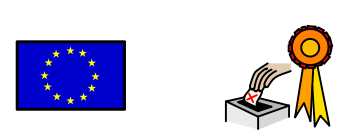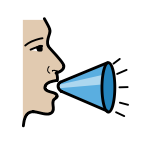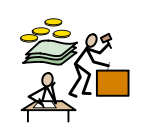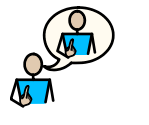Click on a word which is in bold to read what it means.

Inclusion Europe went to Barcelona
for a meeting of our working group on Human Rights.
This happened in the office
of our Spanish member Som Fundació.
There were people from other members, too.

During this meeting
we talked a lot about what each of us is doing
for the European elections
and the right to vote
for people with intellectual disabilities.
We also looked at some documents
that Inclusion Europe is writing
on these topics:

- Legal capacity and rights of the citizens
This is about the right
to take part in politics
in your community.
For example, you can talk to politicians.
Or you can organise meetings about things in your community
that are important to you.
For this, we need to train people with intellectual disabilities.
We also need to talk to their families
and the people who work with them.

- Money
Many people with intellectual disabilities
are poor and feel excluded.
This happens even if they have a job.
This happens because people with disabilities
are often discriminated against.
When someone with a disability starts working,
they often stop getting money from the state.
This happens even if they make very little money.

Inclusion Europe should talk more
about the rights of workers
and about how expensive life is
for people with disabilities.
Then the organisations that participated in the meeting
talked about what they are doing.

Unapei (France) is creating easy-to-read texts, posters and videos
on the European elections.
They are also preparing a document
on some things that are written in the UN CRPD:
- accessibility
- equal rights
- independent living
- education
- getting support from the state when you need it

Inclusie Nederland (Netherlands) is writing
a similar document
about the situation in the Netherlands.
They are also working
on the topic of voting rights.

Plena Inclusión (Spain) has done a lot
for voting rights
of people with intellectual disabilities.
They did a campaign called “Mi Voto Cuenta“.
This means “My vote counts”.
Now they are also working
on inclusive education
and on the justice system.
The justice system is the system
that takes care of crimes.
People with intellectual disabilities need to get the right support
in the justice system.
For example, when they need to talk to a judge or a lawyer.

Fenacerci (Portugal) is working a lot
on the European elections.
They also use our manifesto.
Portugal has also made a new law
that says that 2 percent of the employees in every business
must be people with disabilities.

NFU (Norway) is fights against
people being put back in institutions
in Norway.

Som Fundació is also working on:
- giving houses to people with intellectual disabilities
- helping them to manage their money
- supporting them to be independent

We also heard from some self-advocates
who shared their experiences:
- Carmen Piquer fought for her right to vote.
- Raúl Olivera participates in the programme “Som Companys”.
This means “We are colleagues”.
This is a group of self-advocates
who meet once per month to talk about common problems.
- Raquel Manzano wants to work and live independently
in Barcelona. - Fernando Valero wants to volunteer
with older people.
This was a very nice meeting.
We are very happy to see that so many people
are working hard
to make the lives of people with intellectual disabilities better.





